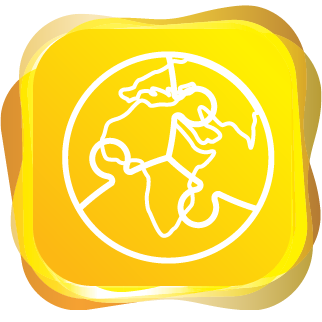 |
CCHU9068 Arts and Humanities
|
Course Description
This course introduces students to liberalism, socialism and nationalism as a complex set of very powerful ideas that have influenced the political, economic and cultural development of Europe, and, subsequently, the world. We are now all living in a period where all of these systems are being questioned and reconfigured.
Liberalism places the individual at the center of things and gave birth to the core concepts of liberty, equality, and individual rights. Socialism gave rise to other concepts like fraternity, a community of workers, and the redistribution of wealth. Nationalism focuses its identity on the nation-state, and, often, on particular groups within the nation as the source of political power. We will explore the intellectual mainsprings of these movements through excerpts from their writings of Hobbes, Locke, Rousseau, Smith, Montesquieu, Kant, Herder, Hegel, Mill, Marx, Lenin, Schmitt, Arendt, Freud, Nietzsche, de Beauvoir, Foucault, Keynes, Hayek, Rawls, Nozick and Friedman. Students will be asked to engage in debates and to articulate how these global movements shape their own lives today in very tangible ways.
All three philosophies have given birth to social movements—sometimes violent and sometimes peaceful—across the world. Together, they have shaped the modern world of nation-states and market economies, emigration and immigration, human rights and terrorism, economic crises and world wars. The apparent triumph of liberalism in the late 20th century is now being challenged and reassessed, but its revolutionary vision remains a vital body of ideas.
Each ideology has reacted and responded to an increasingly integrated economic world and to each other over the course of their histories. Their enduring influence and continued relevance make them worthy subjects of study for comprehending the world in which we all live.

Course Learning Outcomes
On completing the course, students will be able to:
-
- Critically evaluate the core ideas of liberalism, socialism and nationalism in the past and the present.
- Discuss the power and limits of liberalism.
- Be knowledgeable about the many obvious and subtle threats to liberalism, especially that of socialism and nationalism.
- Be knowledgeable about challenges and alternatives to liberalism and the adaptability of liberalism.
Offer Semester and Day of Teaching
Second semester (Wed)
Study Load
| Activities | Number of hours |
| Lectures | 26 |
| Tutorials | 12 |
| Reading / Self-study | 40 |
| Assessment: Term paper | 40 |
| Assessment: Examination | 2 |
| Total: | 120 |
Assessment: 50% coursework; 50% examination
| Assessment Tasks | Weighting |
| Exam | 50 |
| Written paper | 50 |
Required Reading
Selections from:
- Breunig, C., & Levinger, M. (2002). The revolutionary era, 1789-1850. Norton.
- Crone, P. (2012). The Acculturated Native Who Rebels. Institute of Advanced Studies. From https://www.youtube.com/watch?v=QyQt1bCnDm4
- Junger, S. (2016). Tribe: On homecoming and belonging. New York: Hachette Books.
- Rich, N. (1977). The age of nationalism and reform, 1850-1890 (2nd ed.). Norton.
- Rosen, M., & Wolff, J. (1999). Political thought (Oxford readers). Oxford University Press.
- Wolff, J. (2016). An introduction to political philosophy. Oxford University Press.
- Woloch, I., & Brown, G.S. (2012). Eighteenth century Europe: Tradition and Progress, 1715-1789. Norton.
Course Co-ordinator and Teacher(s)
| Course Co-ordinator | Contact |
| Professor R.Y.C. Wong Faculty of Business and Economics (Economics) |
Tel: 2859 1122 Email: rycwong@hku.hk |
| Teacher(s) | Contact |
| Professor R.Y.C. Wong Faculty of Business and Economics (Economics) |
Tel: 2859 1122 Email: rycwong@hku.hk |
| Dr V.W.H. Yuen Faculty of Business and Economics (Economics) |
Tel: 3917 1287 Email: yuenvera@hku.hk |

